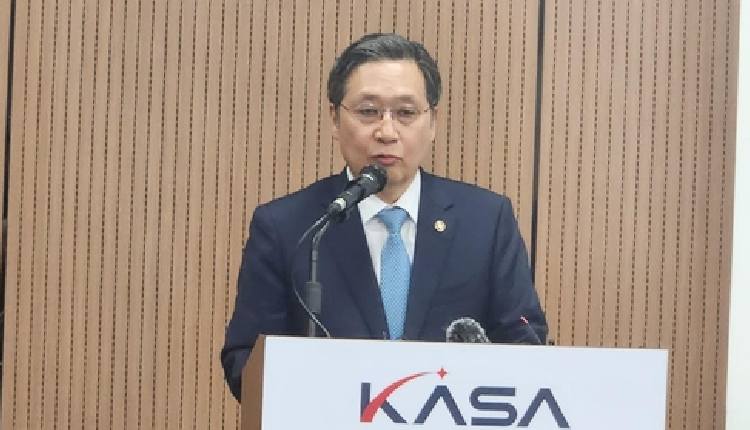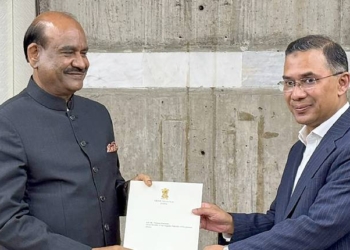Seoul: South Korea’s LG Group is considering entering the space industry and exploring potential business opportunities in the field, the Korea Aerospace Administration (KASA) said on Friday after holding talks with the conglomerate.
KASA Administrator Yoon Young-bin met with LG officials at the group’s research and development (R&D) complex in Seoul earlier in the day to discuss strategies for expanding the private sector’s role in South Korea’s aerospace industry.
At the meeting, LG outlined its ongoing review of space-related technologies and shared updates on its support for domestic space startups, according to KASA.
The group presented a case study involving a successful lunar rover mobility test conducted in partnership with local startup Unmanned Exploration Laboratory, and unveiled a long-term goal of enabling lunar landing by 2032, reports Yonhap news agency.
LG Energy Solution Ltd., the group’s battery manufacturing unit, was previously selected by the U.S. National Aeronautics and Space Administration (NASA) in 2016 to supply lithium-ion batteries for astronaut spacesuits used in deep space exploration.
“LG is currently in the early stages of evaluating the feasibility of entering the space industry. We plan to closely assess various environmental factors in space and explore potential business models,” an LG official said.
KASA said it highlighted key government policies aimed at expanding private-sector participation in the space industry, and emphasised the importance of swift response to technological and policy shifts.
South Korea’s space agency said this month it plans to develop a reusable space launch vehicle by 2035 in a bid to keep pace with the rapidly shifting landscape of the global space industry.
The Korea AeroSpace Administration (KASA) has been working to modify its 2.1 trillion-won (US$1.53 billion) project for a next-generation rocket, originally designed as a single-use launch vehicle, into a reusable system, with the goal of acquiring the necessary technology within the next decade.
The agency stressed that early development of reusable launch vehicles is crucial amid rapid changes in the global space transportation market, driven by the success of SpaceX’s Falcon 9 and Starship.
(IANS)
















